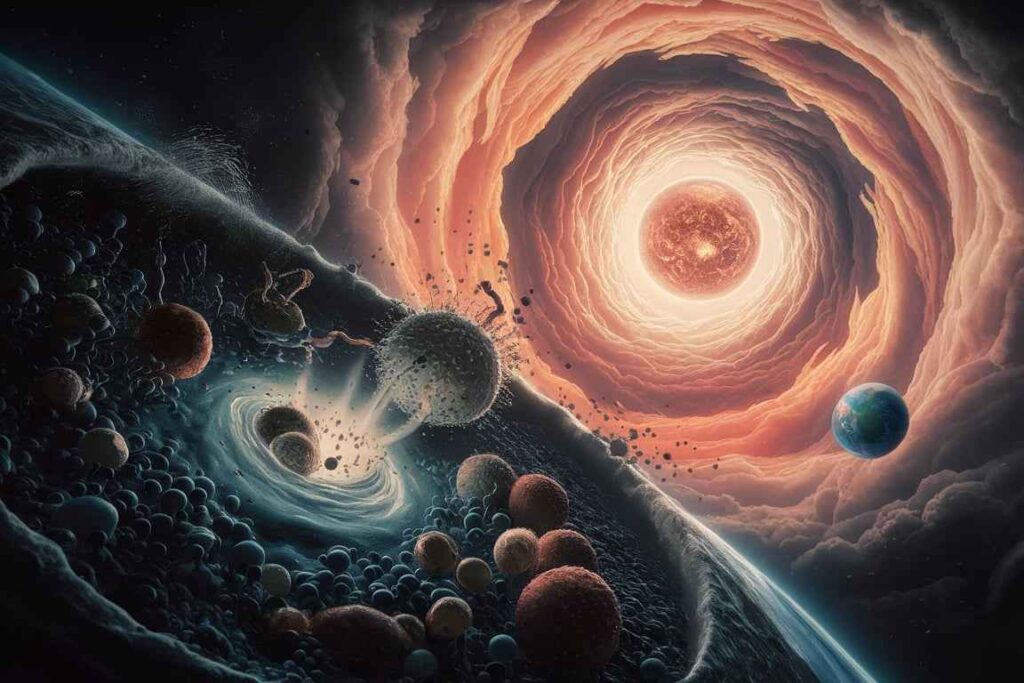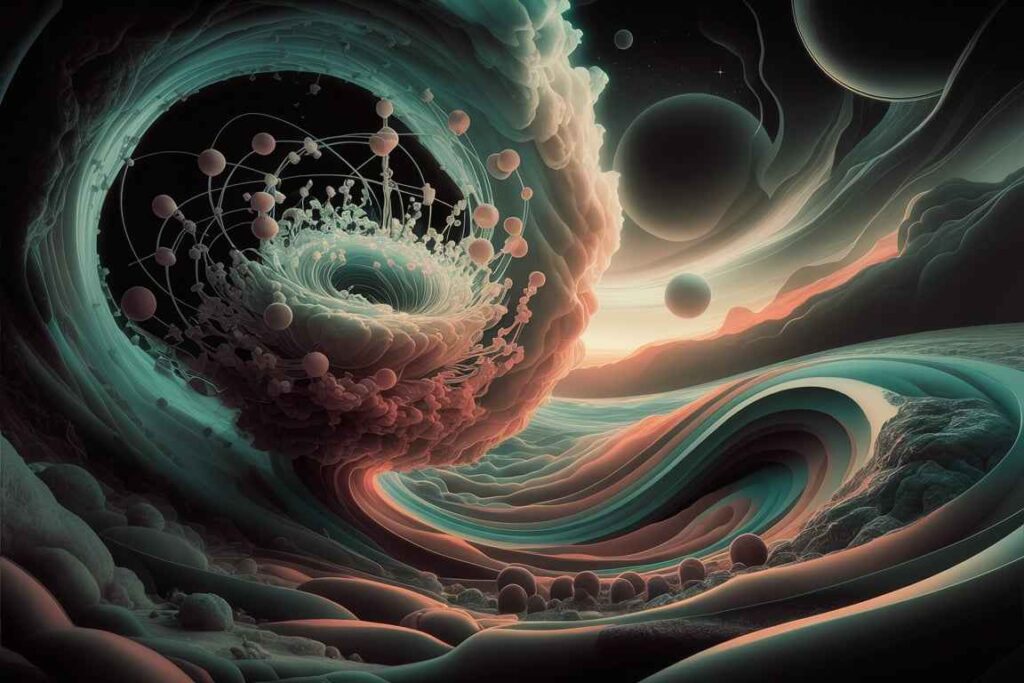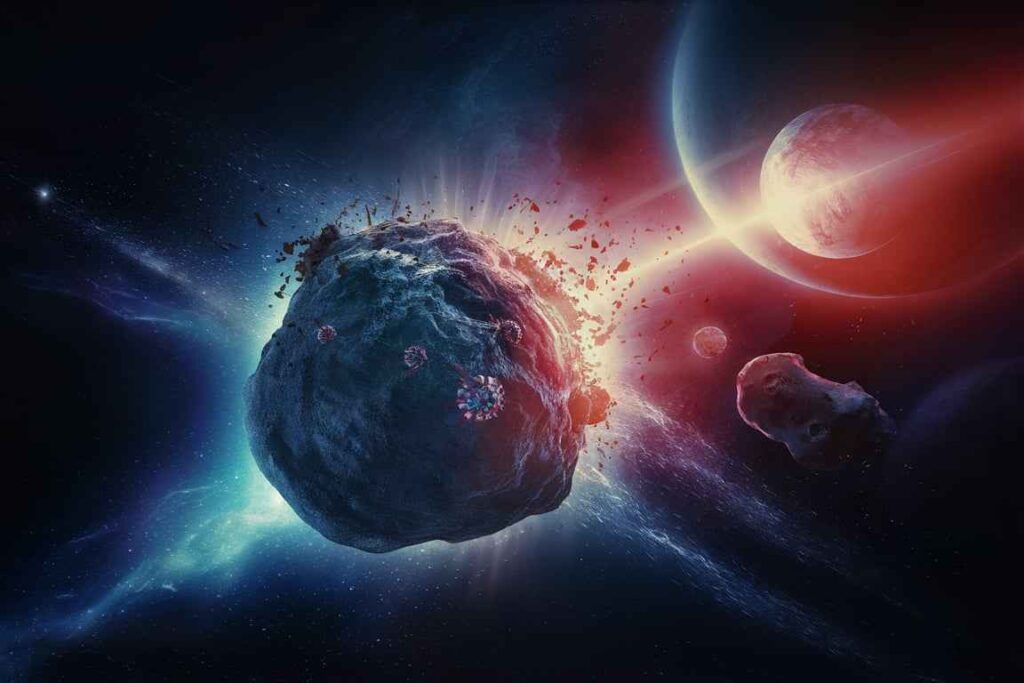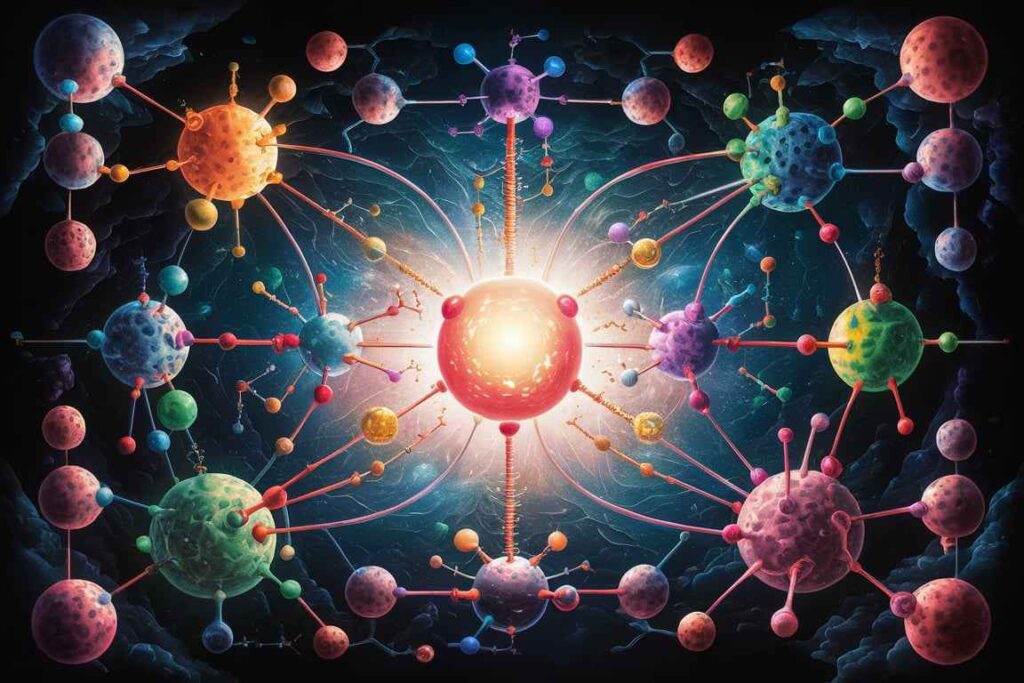The origin of life on Earth has been a subject of scientific inquiry for centuries. Several theories have been proposed to explain how life began. Origin of life on Earth theories range from naturalistic explanations to more speculative ones involving extraterrestrial origins. Here are the main theories that support Theories of origin of life on Earth

Table of Contents
1. Abiogenesis (chemical evolution)
Abiogenesis, often known as chemical evolution, is the most widely accepted scientific theory explaining the beginning of life. It implies that life evolved naturally from nonliving substances via a series of chemical events. The key concepts include:

Primordial Soup Hypothesis:
Alexander Oparin and J.B.S. Haldane proposed this in the 1920s.
This suggests that the Earth’s early atmosphere was decreasing (high in hydrogen, methane, ammonia, and water vapor).
Lightning and UV radiation accelerated chemical processes, resulting in the formation of organic molecules (amino acids and nucleotides) in a “primordial soup.”
Miller–Urey Experiment (1953):
Stanley Miller and Harold Urey conducted an experiment that simulated early Earth conditions.
They demonstrated that organic chemicals, such as amino acids, may be produced from simple inorganic molecules under these conditions, lending support to the primordial soup idea.
Deep-Sea Hydrothermal Vent Hypothesis:
This suggests that life may have begun at deep-sea hydrothermal vents.
These vents are a great source of minerals and a stable environment for chemical processes.
Temperature gradients and chemical energy at these vents may have fueled the synthesis of organic compounds and the evolution of primordial living forms.
RNA World Hypothesis:
The hypothesis is that self-replicating RNA molecules were among the first life forms.
RNA can function as both a genetic material and a catalyst, perhaps playing a key role in early metabolic processes.
2. Panspermia
Panspermia is the theory that life, or at least the building elements of life, started elsewhere in the universe and were carried to Earth by meteoroids, comets, or interstellar dust.

Lithopanspermia:
Suggests that life or its antecedents could survive space travel within rocks blasted from a planet during impact events.
These pebbles could land on another planet and possibly seed it with life.
Radiopanspermia:
It is proposed that radiation pressure from stars could be used to disperse microscopic life forms.
Directed panspermia:
It is possible that an advanced extraterrestrial society intentionally sowed the seeds of life in Earth.
3. Deep-sea hydrothermal vent hypothesis
This hypothesis proposes that life originated in the deep sea near hydrothermal vents, where superheated water rich in minerals flows from the Earth’s crust into the ocean. The energy and chemicals provided by these vents could have driven the formation of organic molecules and early life forms.
4. Iron-Sulfur World Hypothesis
Proposed by Günter Wächtershäuser, this hypothesis suggests that life may have originated on the surface of iron and nickel sulfide minerals. These minerals could catalyze the formation of organic molecules from simple gases like carbon monoxide and hydrogen sulfide.
5. Clay Hypothesis
Proposed by Alexander Cairns-Smith, this theory suggests that complex organic molecules could have formed on the surfaces of clay minerals. Clays can catalyze chemical reactions and may have provided a template for the assembly of organic molecules into more complex structures.
6. Protein-First Hypothesis
This hypothesis posits that proteins, rather than nucleic acids (RNA or DNA), were the first self-replicating molecules. Proteins are versatile catalysts and could have driven the formation of other complex molecules necessary for life.
7. Autocatalytic Networks
Stuart Kauffman proposed the idea that life originated from networks of molecules that catalyze each other’s formation. These autocatalytic networks could have evolved to become more complex, eventually leading to the first living cells.

Frequently Asked Question
Define Theories of origin of life on Earth.
The origin of life on Earth has been a subject of scientific inquiry for centuries. Several theories have been proposed to explain how life began. Origin of life on Earth theories range from naturalistic explanations to more speculative ones involving extraterrestrial origins
What are the Theories of origin of life on Earth.
The Theories of origin of life on Earth are
1. Abiogenesis (chemical evolution)
2. Panspermia
3. Deep-sea hydrothermal vent hypothesis.
4. Iron-Sulfur World Hypothesis
5. Clay Hypothesis
6. Protein-First Hypothesis
7. Autocatalytic Networks
Related Article

